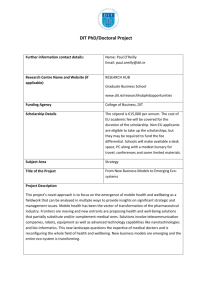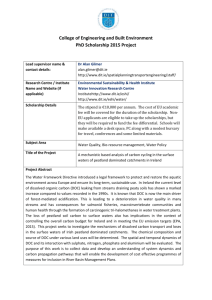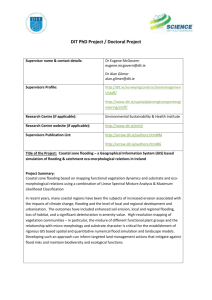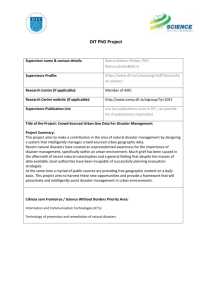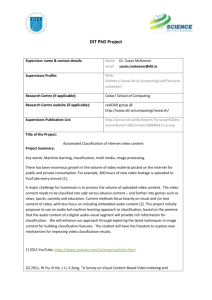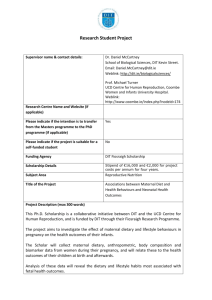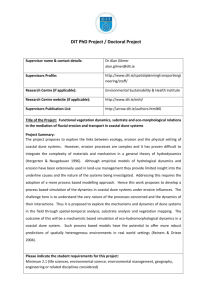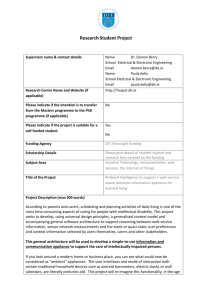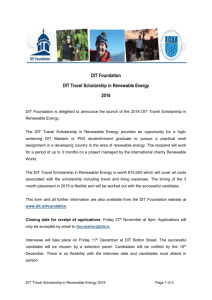Carbon dynamics in upland freshwater systems – propagation
advertisement
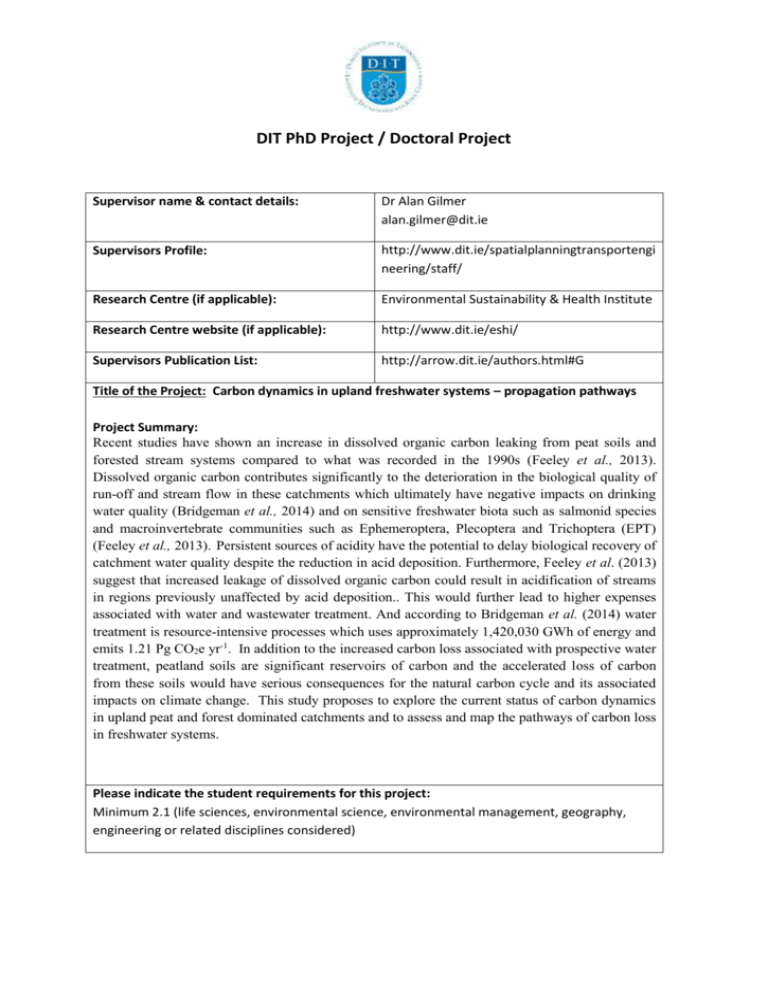
DIT PhD Project / Doctoral Project Supervisor name & contact details: Dr Alan Gilmer alan.gilmer@dit.ie Supervisors Profile: http://www.dit.ie/spatialplanningtransportengi neering/staff/ Research Centre (if applicable): Environmental Sustainability & Health Institute Research Centre website (if applicable): http://www.dit.ie/eshi/ Supervisors Publication List: http://arrow.dit.ie/authors.html#G Title of the Project: Carbon dynamics in upland freshwater systems – propagation pathways Project Summary: Recent studies have shown an increase in dissolved organic carbon leaking from peat soils and forested stream systems compared to what was recorded in the 1990s (Feeley et al., 2013). Dissolved organic carbon contributes significantly to the deterioration in the biological quality of run-off and stream flow in these catchments which ultimately have negative impacts on drinking water quality (Bridgeman et al., 2014) and on sensitive freshwater biota such as salmonid species and macroinvertebrate communities such as Ephemeroptera, Plecoptera and Trichoptera (EPT) (Feeley et al., 2013). Persistent sources of acidity have the potential to delay biological recovery of catchment water quality despite the reduction in acid deposition. Furthermore, Feeley et al. (2013) suggest that increased leakage of dissolved organic carbon could result in acidification of streams in regions previously unaffected by acid deposition.. This would further lead to higher expenses associated with water and wastewater treatment. And according to Bridgeman et al. (2014) water treatment is resource-intensive processes which uses approximately 1,420,030 GWh of energy and emits 1.21 Pg CO2e yr-1. In addition to the increased carbon loss associated with prospective water treatment, peatland soils are significant reservoirs of carbon and the accelerated loss of carbon from these soils would have serious consequences for the natural carbon cycle and its associated impacts on climate change. This study proposes to explore the current status of carbon dynamics in upland peat and forest dominated catchments and to assess and map the pathways of carbon loss in freshwater systems. Please indicate the student requirements for this project: Minimum 2.1 (life sciences, environmental science, environmental management, geography, engineering or related disciplines considered) Deadline to submit applications (only for funded projects) Please choose College as appropriate Arts & Tourism Business Engineering & Built Environment Science & Health
